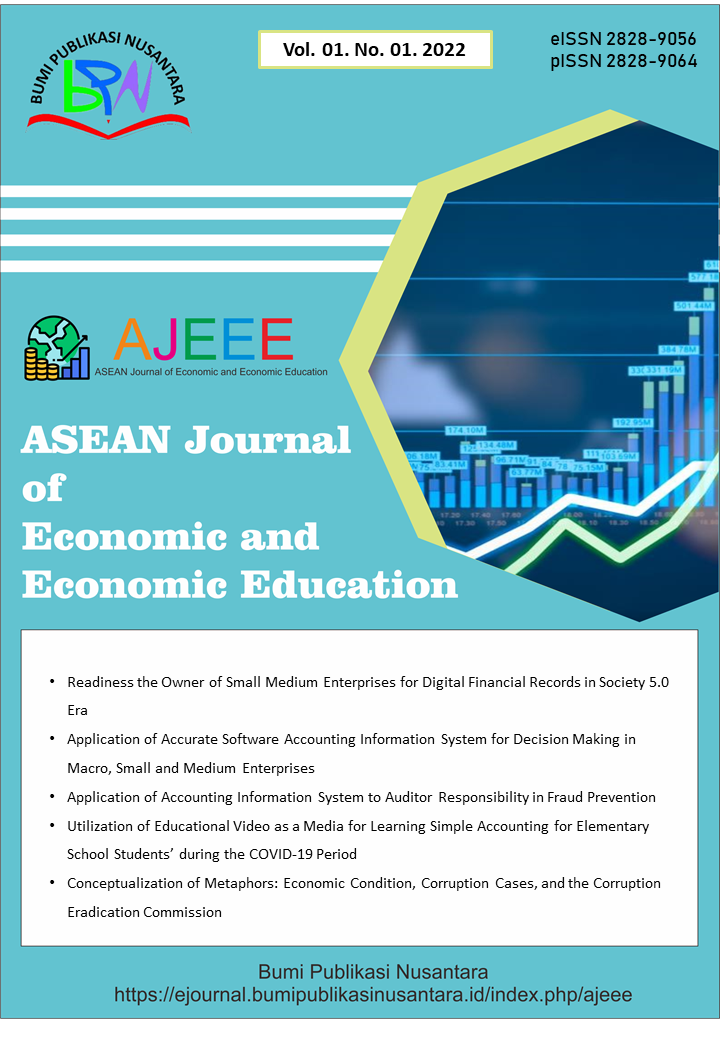Harmonization of International Valuation Standards and International Financial Reporting Standards
 ), Shaturaev Jakhongir(2),
), Shaturaev Jakhongir(2),
(1) Tashkent State University of Economics
(2) Tashkent State University of Economics
 Corresponding Author
Corresponding Author
Abstract
Keywords
References
Bandola-Gill, J., Grek, S., and Tichenor, M. (2022). Harmonising global public policy: Producing global standards, local data and statistical capacity development. In Governing the Sustainable Development Goals: Quantification in Global Public Policy, 2022, 41-67.
Dhar, B. K., Stasi, A., Döpping, J. O., Gazi, M. A. I., Shaturaev, J., and Sarkar, S. M. (2022). Mediating role of strategic flexibility between leadership styles on strategic execution: A study on Bangladeshi private enterprises. Global Journal of Flexible Systems Management, 23(3), 409-420.
Dhar, B. K., Tiep Le, T., Coffelt, T. A., and Shaturaev, J. (2023). US‐China trade war and competitive advantage of Vietnam. Thunderbird International Business Review, 65(2), 255-263.
Gazi, M. A. I., Islam, M. A., Shaturaev, J., and Dhar, B. K. (2022a). Effects of job satisfaction on job performance of sugar industrial workers: Empirical evidence from Bangladesh. Sustainability, 14(21), 14156.
Gazi, M. A. I., Nahiduzzaman, M., Shaturaev, J., Dhar, B. K., and Halim, M. A. (2022b). Dynamic Nexus between macroeconomic factors and CO2 emissions: Evidence from oil-producing countries. Frontiers in Environmental Science, 10, 1005814.
Hines, T. M. (2007). International financial reporting standards: A guide to sources for international accounting standards. Journal of Business and Finance Librarianship, 12(3).
Lombardozzi, L. (2022). The marketisation of life: entangling social reproduction theory and regimes of patriarchy through women’s work in post-Soviet Uzbekistan. Review of International Political Economy, 29(6), 1870-1893.
Otto, O. (2020). Prospects for the implementation of corporate disclosure standards in accordance with ISAR in Uzbekneftegaz JSC. Bulletin of Science and Practice, 6(11), 281-287.
Oyewo, B., Emebinah, E., and Savage, R. (2020). Challenges in auditing fair value measurement and accounting estimates: Some evidence from the field. Journal of Financial Reporting and Accounting, 18(1), 51-75.
Shaturaev, J. (2022). Efficiency of investment project evaluation in the development of innovative industrial activities. ASEAN Journal of Science and Engineering, 3(2), 147-162.
Sherzod, K., and Akram, K. (2020). Improvement of National Accounting Standards Based on IAS 7. Бюллетень науки и практики, 6(11), 294-299.
Article Metrics
Abstract View : 1094 times
: 1094 times Download : 653 times
Download : 653 times
Refbacks
- There are currently no refbacks.
Copyright (c) 2024 Bumi Publikasi Nusantara

This work is licensed under a Creative Commons Attribution-ShareAlike 4.0 International License.



_publication_ethics1.png)



